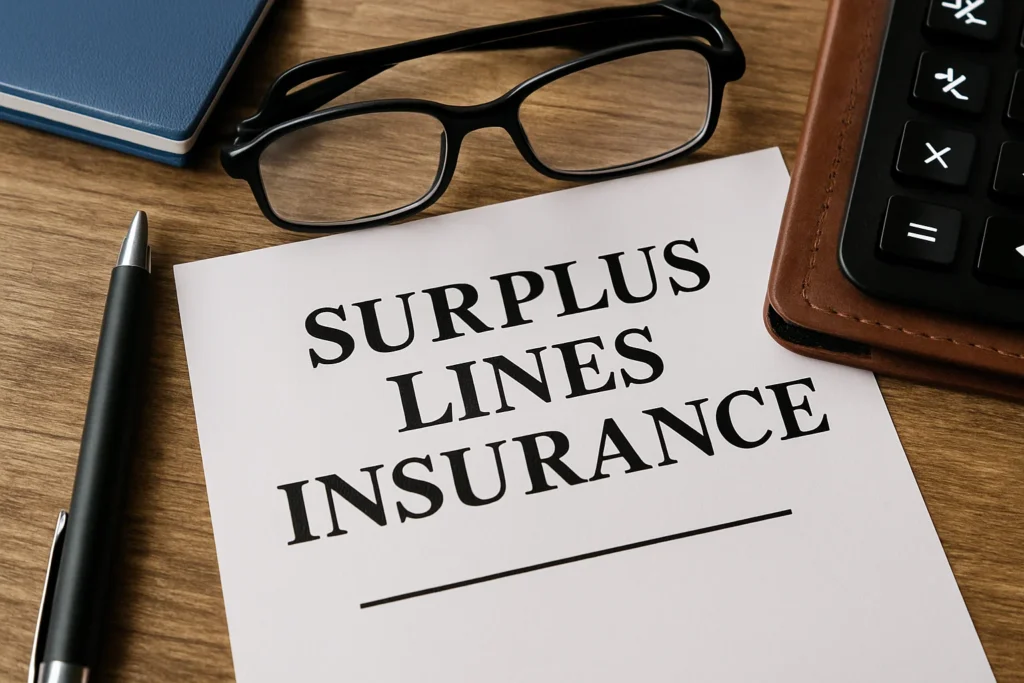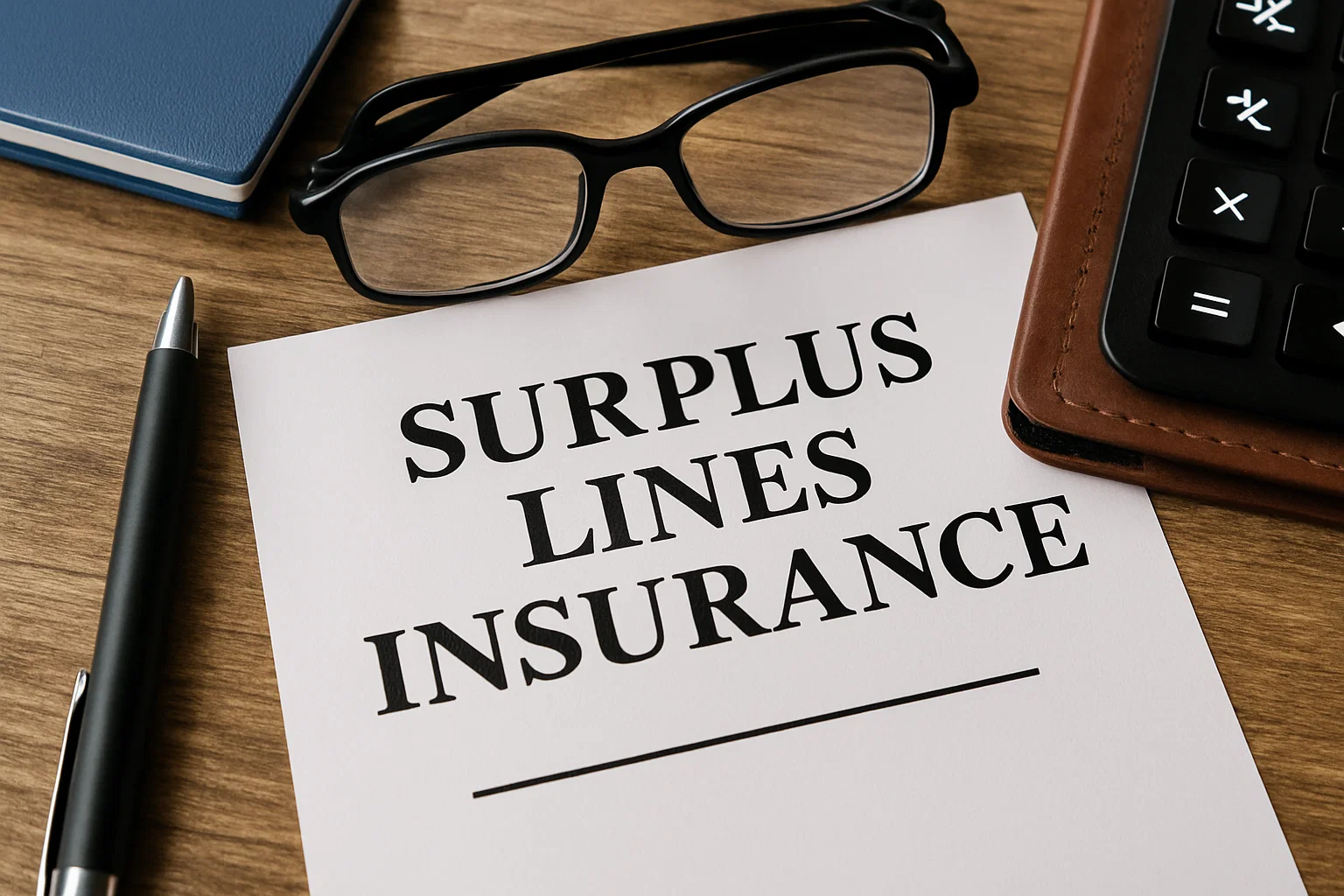
Beyond Borders: A Comprehensive Guide to Surplus Line Insurance and How to Access It Globally
In today’s rapidly evolving risk landscape, traditional insurance policies often fall short of covering unconventional or high-risk exposures. That’s where surplus line insurance—also known as surplus lines insurance—comes into play. Acting as a crucial component of the global insurance market, surplus line insurance provides coverage for risks that standard insurers typically decline. This type of insurance supports innovation, facilitates business in unique sectors, and ensures coverage is available where it’s most needed.
Whether it’s a drone delivery company, a cannabis dispensary, or a high-rise project in a hurricane-prone region, surplus line insurance offers tailored protection that standard markets can’t or won’t underwrite. Globally recognized and regulated differently across regions, surplus line insurance is particularly essential for businesses and individuals who operate outside the norm.
What is Surplus Line Insurance?
Surplus line insurance refers to coverage provided by insurers who are not licensed in a particular jurisdiction but are legally permitted to offer coverage for hard-to-place risks. Unlike admitted insurers, surplus line carriers are not bound by standard rate or form regulations, allowing them to create customized policies for unusual exposures.
These insurers are vetted and often financially robust, but they are considered “non-admitted” because they don’t follow local state or national insurance regulations. Instead, they are regulated through surplus lines brokers and specialty insurance departments.
Key Features of Surplus Line Insurance
- Flexibility in Coverage: Policies can be customized to fit the exact needs of the insured.
- Access to Unique Markets: Covers emerging industries or high-risk sectors not served by traditional carriers.
- Broker-Mediated Access: Requires placement through licensed surplus lines brokers or intermediaries.
- Global Reach: Used across countries like the United States, United Kingdom, Australia, and Canada.
Why Go for Surplus Line Insurance?
Surplus line insurance is the go-to solution when:
- A risk is too new or complex for admitted markets.
- The amount of coverage needed exceeds what standard insurers can offer.
- A claim history makes the insured too risky for regular markets.
- Specialized endorsements or policy terms are needed.
How to Join or Purchase Surplus Line Insurance
Unlike regular policies where consumers can directly approach insurers, surplus line insurance involves a more structured pathway. Here’s how the process typically works worldwide:
Determine Eligibility
Ensure your risk cannot be insured in the standard market. This is often documented by a “diligent search” of admitted insurers who reject the application.
Find a Licensed Surplus Line Broker
Only licensed surplus line brokers can place business with surplus line insurers. These brokers are authorized to access the non-admitted market.
Application and Risk Assessment
The broker will help gather all necessary documentation including financial statements, descriptions of operations, claims history, and any specific coverage requirements.
Underwriting and Quotation
The surplus line carrier evaluates the risk and provides a custom quote. This can include higher deductibles, unique coverage terms, and specialized clauses.
Binding Coverage and Filing
Once the policy is accepted, the broker binds the coverage and files necessary compliance documents with local surplus lines authorities or stamping offices.
Top Global Providers of Surplus Line Insurance and How to Apply
Here is a list of notable surplus line insurers and managing brokers operating globally, along with links for application or contact.
Lloyd’s of London (UK-based, Global Reach)
Overview: Lloyd’s is one of the most prominent surplus line markets in the world. It operates as a marketplace with multiple syndicates underwriting risks that traditional insurers avoid.
- Coverage Areas: Marine, aviation, cyber, terrorism, and emerging industries.
- Application: Must be accessed via approved Lloyd’s brokers.
Website: https://www.lloyds.com
How to Apply: http://Find a broker
AXIS Capital (Bermuda, US, and International)
Overview: AXIS operates globally with a strong presence in specialty and surplus lines. Offers customized coverage for high-risk businesses, professional lines, and environmental risks.
- Application: Access through wholesale or surplus lines brokers.
Website: https://www.axiscapital.com
Contact for US Surplus Lines: http://Contact Page
Markel Corporation (US-based, Global Access)
Overview: Markel offers specialty insurance and reinsurance including property, casualty, and professional liability risks on a surplus lines basis.
- Application: Available through independent agents or wholesalers.
Website: https://www.markel.com
Apply: http://Find a Markel broker
Scottsdale Insurance (Nationwide Excess & Surplus, USA)
Overview: A division of Nationwide, this company is a major player in U.S. surplus lines. Offers solutions for hospitality, construction, and special events.
Website: https://www.nationwide.com/business/insurance/excess-surplus
Apply via Broker: Available through approved wholesalers only.
Beazley Group (UK and USA)
Overview: Beazley provides specialist insurance in surplus lines, focusing on cyber, marine, environmental, and professional liability.
Website: https://www.beazley.com
Apply: Via licensed brokers or MGA partners listed on their website.
Canopius (Lloyd’s Syndicate)
Overview: Operates in the Lloyd’s market with a focus on surplus lines coverage for specialty and commercial businesses globally.
Website: https://www.canopius.com
Broker Access: http://Contact Page
Regulatory Oversight of Surplus Line Insurance
Surplus line insurance is heavily monitored, albeit differently than admitted insurers. Each jurisdiction has its own system for regulation:
- United States: National Association of Insurance Commissioners (NAIC) guidelines and state-level surplus lines offices.
- United Kingdom: Prudential Regulation Authority and Financial Conduct Authority.
- Canada: Regulated provincially; must use licensed intermediaries.
- Australia: Overseen by APRA (Australian Prudential Regulation Authority) and must use authorized foreign insurers.
Always verify that the insurer is listed on the jurisdiction’s eligible surplus lines list.
Benefits and Drawbacks
| Pros | Cons |
|---|---|
| Tailored coverage for complex risks | May not have the same consumer protections |
| Access to global insurers | Premiums often higher than standard market |
| Flexibility in policy terms | Limited recourse in case of dispute |
Important Considerations Before Applying
- Financial Strength: Check AM Best ratings of the surplus line carrier.
- Broker Licensing: Confirm your broker is licensed for surplus lines placement.
- Disclosure Requirements: Be prepared for more documentation than typical policies.
- Compliance Fees: Policies may include stamping fees or taxes.
A Critical Resource in an Unpredictable World
Surplus line insurance is more than just a fallback option—it’s a strategic tool that enables innovation, business continuity, and comprehensive risk management in today’s uncertain climate. From covering the uninsurable to supporting unique ventures, surplus lines fill essential gaps in the global insurance framework.
If your needs go beyond the boundaries of traditional insurance, surplus line coverage might just be the solution that ensures you’re protected when others say no. Reach out to a licensed surplus lines broker today and explore your options for truly customized protection.
